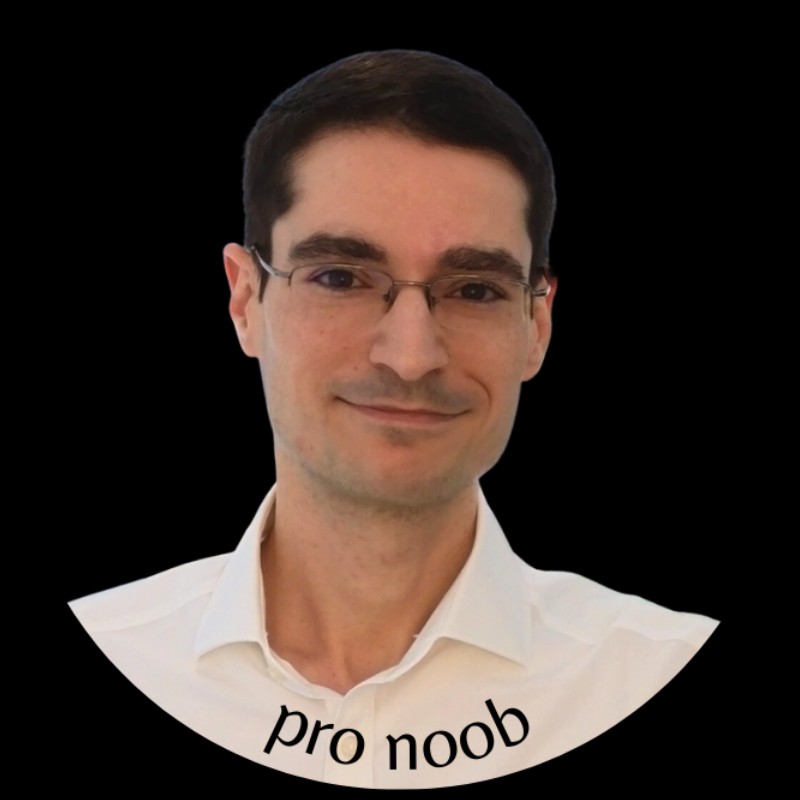As a marketer, I want to know if there are specific things I should do to improve our LLM visibility that I am not currently doing as part of my routine marketing and SEO efforts.
So far, it doesn’t seem like it.
There seems to be massive overlap in SEO and GEO, such that it doesn’t seem useful to consider them distinct processes.
The things that contribute to good visibility in search engines also contribute to good visibility in LLMs. GEO seems to be a byproduct of SEO, something that doesn’t require dedicated or separate effort. If you want to increase your presence in LLM output, hire an SEO.
Sidenote.
GEO is “generative engine optimization”, LLMO is “large language model optimization”, AEO is “answer engine optimization”. Three names for the same idea.
“There’s only so many ways you can shake a stick at aggregating a group of information, ranking it, and then disseminating your best approximation of what the best and most accurate result/info would be.”
Most people agreed with my sentiment, but others shared nuances between LLMs and search engines that are worth understanding—even if they don’t (in my opinion) warrant creating the new discipline of GEO:
LLMs operate differently. They derive their understanding of a brand’s authority from words on the page, from the prevalence of particular words, the co-occurrence of different terms and topics, and the context in which those words are used. Unlinked content will further an LLM’s understanding of your brand in a way that won’t help a search engine.
As Gianluca Fiorelli writes in his excellent article:
“Brand mentions now matter not because they increase ‘authority’ directly but because they strengthen the position of the brand as an entity within the broader semantic network.
When a brand is mentioned across multiple (trusted) sources:
The entity embedding for the brand becomes stronger.
The brand becomes more tightly connected to related entities.
The cosine similarity between the brand and related concepts increases.
The LLM ‘learn’ that this brand is relevant and authoritative within that topic space.”
Many companies already value off-site mentions, albeit with the caveat that those mentions should be linked (and dofollow). Now, I can imagine brands relaxing their definition of a “good” off-site mention, and being happier with unlinked mentions in platforms that pass little traditional search benefit.
As Eli Schwartz puts it,
“In this paradigm, links don’t need to be hyperlinked (LLMs read content) or restricted to traditional websites. Mentions in credible publications or discussions sparked on professional networks (hello, knowledge bases and forums) all enhance visibility within this framework.”
Track brand mentions with Brand Radar
You can use our new tool, Brand Radar, to track your brand’s visibility in AI mentions, starting with AI Overviews.
Enter the topic you want to monitor, your brand (or your competitors’ brands), and see impressions, share of voice, and even specific AI outputs mentioning your brand:
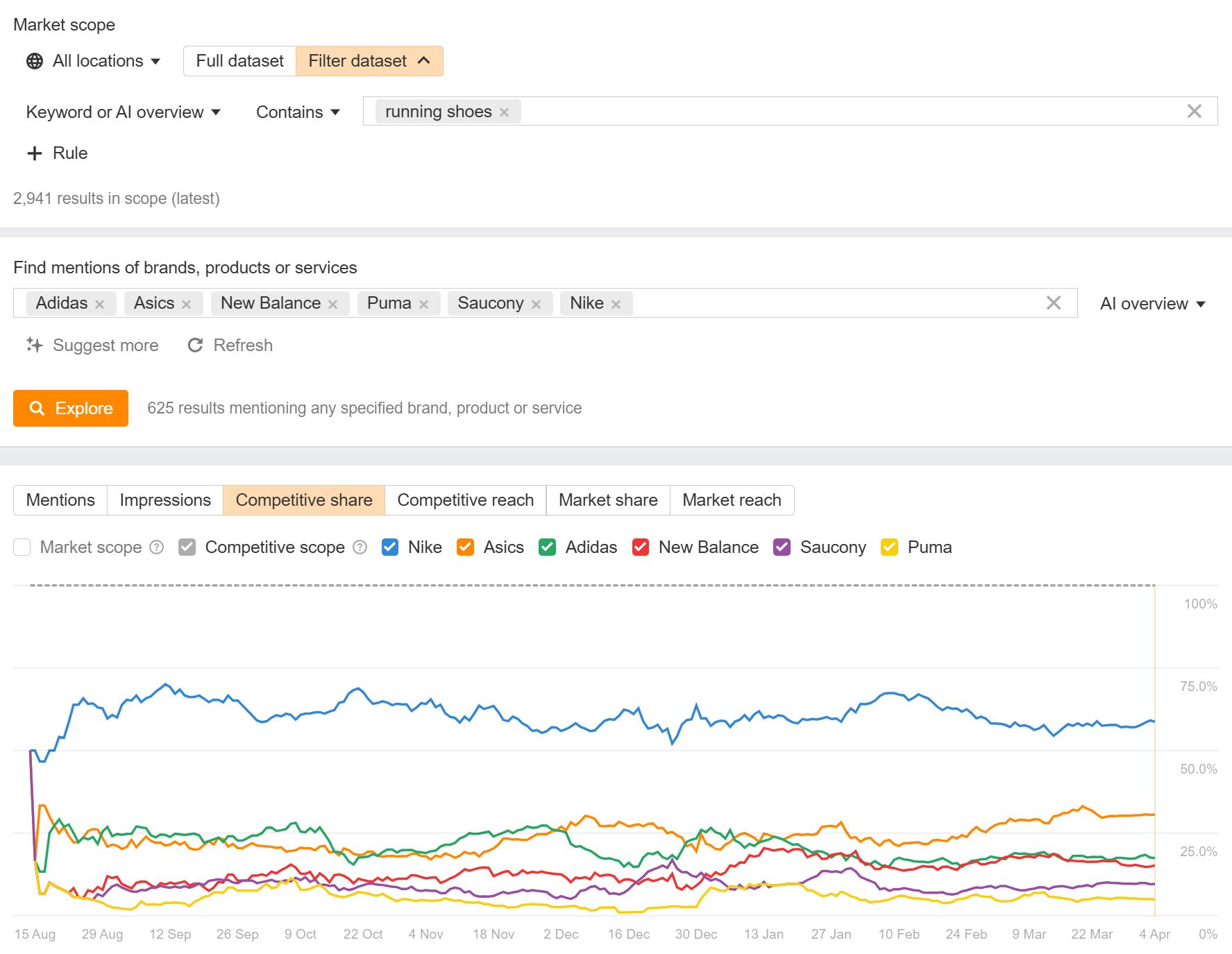
These tactics offer enough SEO benefit that many people still deem them worthwhile, but they will offer even less benefit for LLM visibility. Without any relevant context surrounding these links or articles, they will do nothing to further an LLM’s understanding of the brand or boost the likelihood of it appearing in outputs.
“It’s 2025 and most content is still written for humans instead of LLMs. 99.9% of attention is about to be LLM attention, not human attention.
E.g. 99% of libraries still have docs that basically render to some pretty .html static pages assuming a human will click through them. In 2025 the docs should be a single your_project.md text file that is intended to go into the context window of an LLM.
Repeat for everything.”
This is an inversion of the SEO adage that we should write for humans, not robots: there may be a benefit to focusing our energy on making information accessible to robots, and relying on the LLMs to render the information into more accessible forms for users.
In this way, there are specific information structures that can help LLMs correctly understand the information we provide.
For example, Snowflake refers to the idea of “global document context”. (H/T to Victor Pan from HubSpot for sharing this article.)
LLMs work by breaking text into “chunks”; by adding extra information about the document throughout the text (like company name and filing date for financial text), it’s easier for the LLM to understand and correctly interpret each isolated chunk, “boosting QA accuracy from around 50%-60% to the 72%-75% range.”
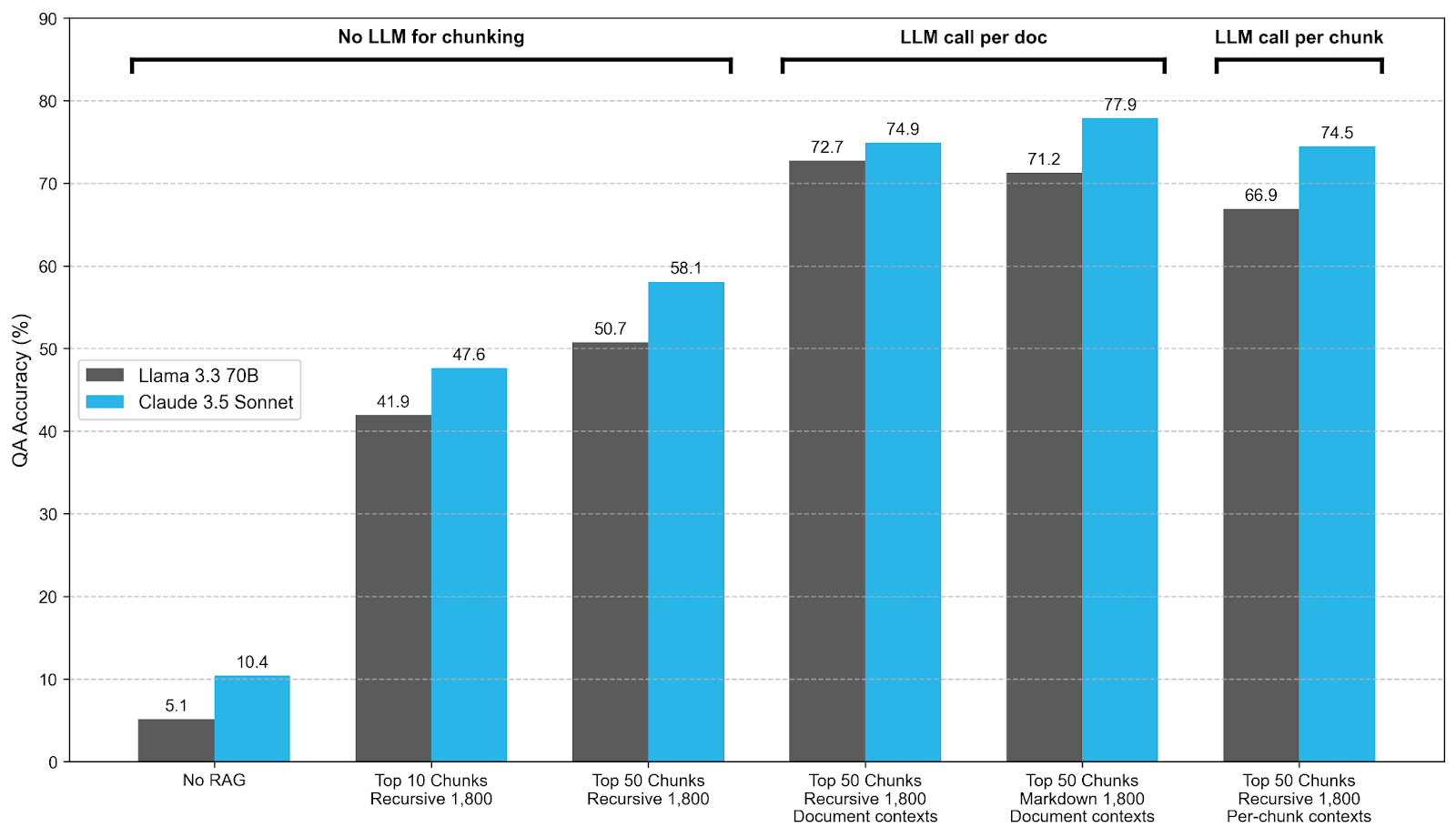
Understanding how LLMs process text offers small ways for brands to improve the likelihood that LLMs will interpret their content correctly.
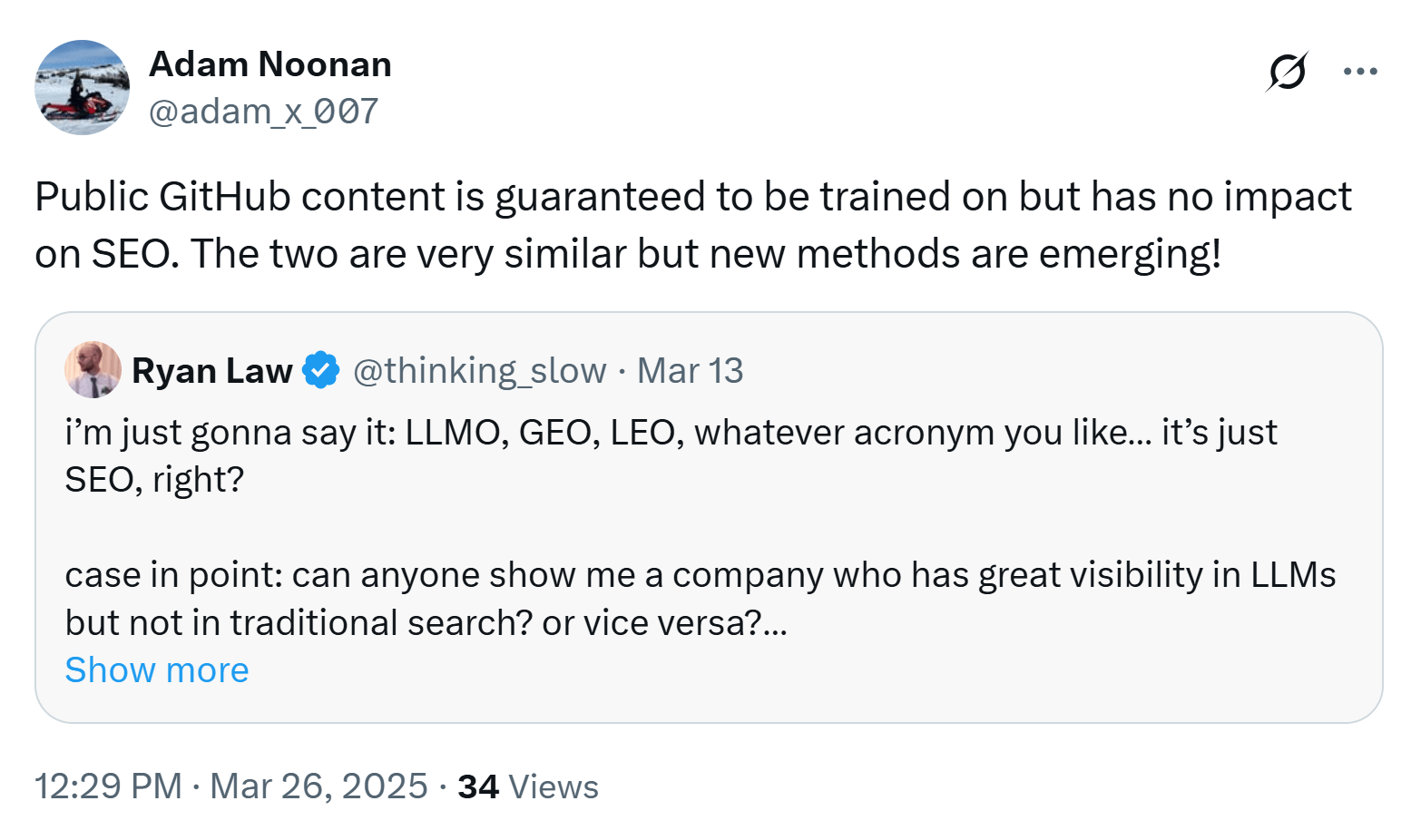
Coding is arguably the most successful use case for LLMs, and developers must make up a sizeable portion of total LLM users.
For some companies, especially those selling to developers, there may be a benefit to “optimizing” the content these developers are most likely to interact with—knowledgebases, public repos, and code samples—by including extra context about your brand or products.
“Most AI crawlers do not render JavaScript. There’s no renderer. Popular AI crawlers like those used by OpenAI and Anthropic do not even execute JavaScript. That means they won’t see content that is rendered client-side through JavaScript.”
This is more of a footnote than a major difference, for the simple reason that I don’t think this will remain true for very long. This problem was solved by many non-AI web crawlers, and will be solved by AI web crawlers in short order.
But for now, if you rely heavily on JavaScript rendering, a good portion of your website’s content may be invisible to LLMs.
Final thoughts
But here’s the thing: managing indexing and crawling, structuring content in machine-legible ways, building off-page mentions… these all feel like the classic remit of SEO.
And these unique differences don’t seem to have manifested in radical differences between most brands’ search visibility and LLM visibility: generally speaking, brands that do well in one also do well in the other.
Even if GEO does eventually evolve to require new tactics, SEOs—people who spend their careers reconciling the needs of machines and real people—are the people best-placed to adopt them.
So for now, GEO, LLMO, AEO… it’s all just SEO.
Further reading
Similar Posts
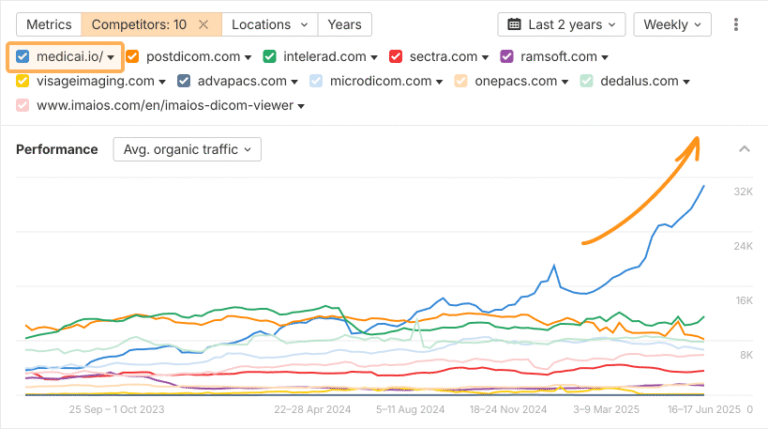
10x Traffic by going global with SEO: The Medicai + Ahrefs Success story
Medicai used Ahrefs to accelerate their organic traffic against their competitors using a combination of programmatic and content-based strategies. Get an account for Ahrefs. Everyday once you wake up, open it and check it while you drink your morning coffee. Look into the keywords you rank for, and then what your competition ranks for. Then…
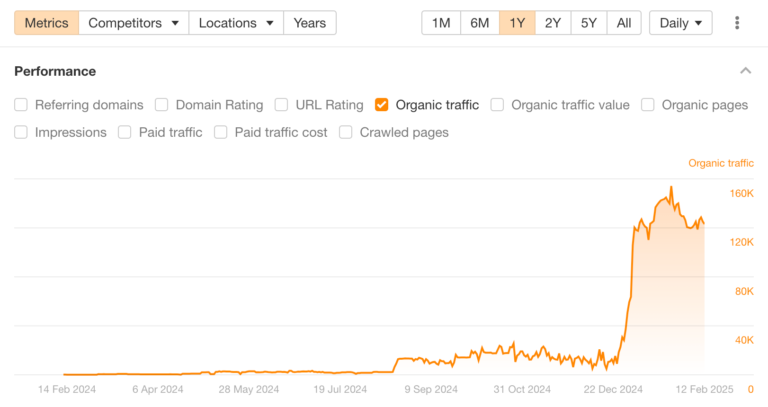
Top 40 Trending EV Companies (Q1 2025)
We analyzed the organic traffic growth of over 8000 websites to discover the hottest trending EV companies. At the top, you’ll find Green V, Vayve, Zeekr, En Plus, and EV Joints. To find the top trending EV companies in 2025 we calculated the percentage growth of organic traffic to their websites between January 1, 2024…
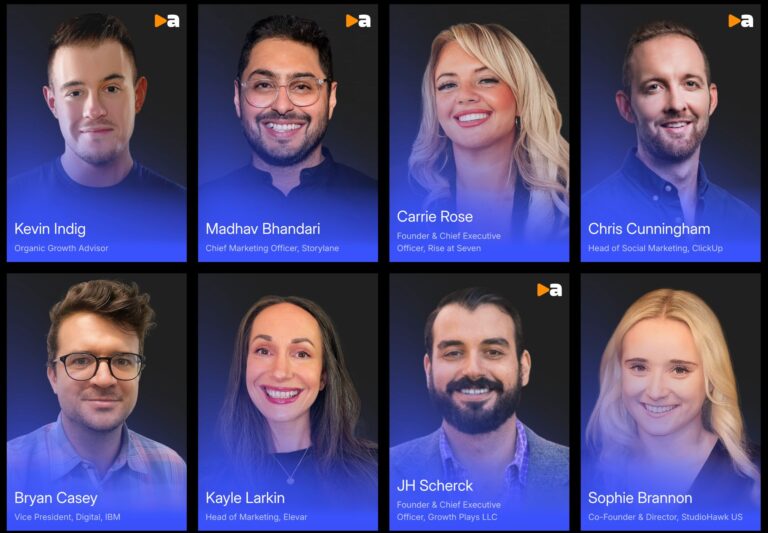
I Asked 20+ Marketers for the Best Marketing Newsletters. Here’s 10 They Recommended
There are hundreds of marketing newsletters competing for your attention. Maybe thousands. So I did something different: I asked the speakers and panelists at Ahrefs Evolve, our conference in San Diego from October 13-15, which newsletters they actually read and recommend. The result? A curated list of newsletters that span SEO, media, tech, leadership, and…
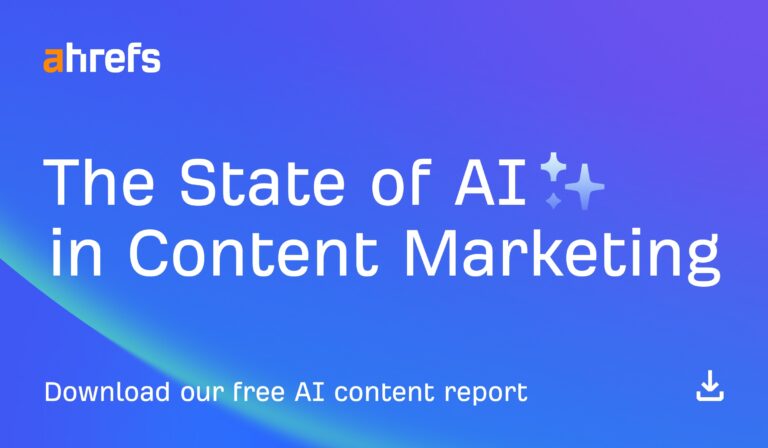
80+ Up-to-Date AI Statistics for 2025 (No Stale Sources)
AI is all anyone can talk about right now–and for good reason. It’s on track to drive change at a scale we haven’t seen since the industrial revolution. But in a space moving this fast, most stats you find are already out of date. So we did the digging for you. Here are 80+ current, credible,…

How to Lock or Unlock Your Domain: A Guide to What a Domain Lock Is and What it Does
Welcome to our guide on locking and unlocking your domain name. Your domain name is your business’ virtual address. If you’re creating a website for your business, it’s important to understand how to secure your domain name. In this guide, we’ll explore the world of domain locks and explain what they are, why they matter,…
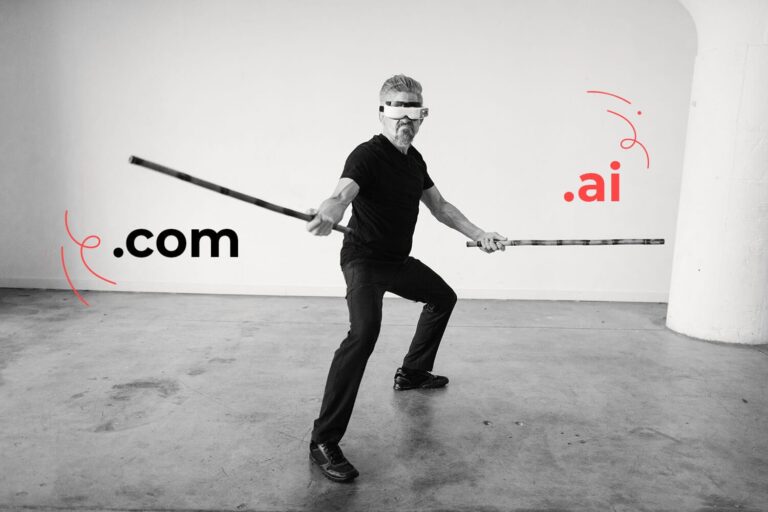
.com vs .ai: What Domain Name Is Best For You?
Are you currently facing the tough decision of choosing between a .com and a .ai domain? Is that why you clicked on this link? It must be, I can’t think of any other reason you’d be here. Well, good news, we’re here to help you make an informed choice and register the best domain for…





